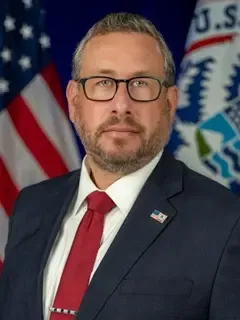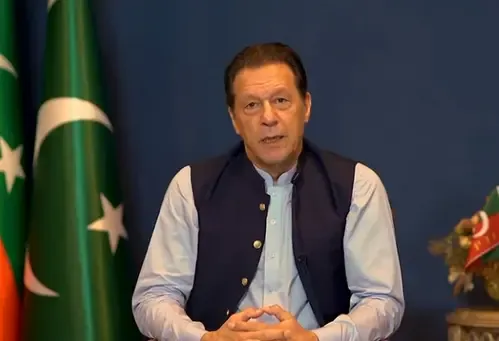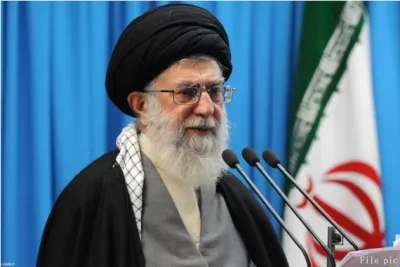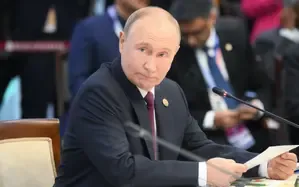France Raises Alarm Over Increased Tensions in Lebanon
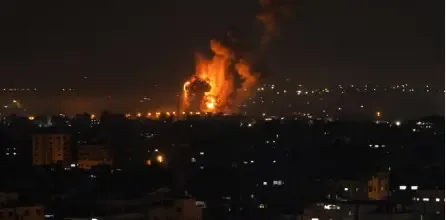
Synopsis
Key Takeaways
- France condemns rocket fire from Lebanon into Israel.
- Israeli airstrikes have resulted in fatalities and injuries in Lebanon.
- France calls for adherence to the November 2024 ceasefire agreement.
- UNIFIL warns against further escalation of violence.
- Lebanese Foreign Minister seeks regional diplomatic support.
Paris, March 23 (NationPress) France has voiced significant concern over the escalating tensions in southern Lebanon, condemned the rocket launches into Israel from Lebanese soil, and urged Israel to practice restraint following its retaliatory airstrikes.
In a statement from the Foreign Ministry on Saturday, France called on all involved parties to adhere to the commitments established in the ceasefire agreement from November 2024, to prevent an escalation that could jeopardize the security of Lebanon, Israel, and the broader region, as reported by Xinhua news agency.
The statement also emphasized the necessity to maintain the notable progress made in recent months to ensure the safety of both Israelis and Lebanese on either side of the Blue Line.
French Foreign Minister Jean-Noel Barrot communicated these concerns to Israeli Foreign Minister Gideon Sa'ar and Lebanese Foreign Minister Youssef Rajji.
According to health authorities in Lebanon, at least six individuals lost their lives and 28 others sustained injuries due to fresh Israeli airstrikes targeting eastern and southern Lebanon on Saturday evening.
Israeli airstrikes in southern Lebanon focused on the city of Tyre and various valleys and villages, resulting in six fatalities and injuring 22, as stated by Lebanon's Public Health Emergency Operations Centre, which also reported six injuries in eastern Lebanon.
A Lebanese security source disclosed to Xinhua news agency that Israel had conducted 15 airstrikes on Saturday evening alone.
The Israel Defense Forces (IDF) reported that the Israeli Air Force initiated a second wave of strikes against what it identified as Hezbollah command centers, infrastructure locations, militants, rocket launchers, and a weapons storage site across Lebanon.
They stated their intention to continue strikes as necessary to protect Israeli civilians.
Earlier, a statement from the Israeli Defence Minister's Office indicated that Israeli Prime Minister Benjamin Netanyahu and Defence Minister Israel Katz had directed the IDF to initiate a second wave of strikes targeting numerous "Hezbollah positions" in Lebanon in retaliation for the rockets fired into northern Israel on Saturday morning.
"The Lebanese government is accountable for all events occurring on its territory," the statement read.
"Israel will not permit any harm to its citizens and sovereignty, and will act in every possible way to ensure the security of Israeli citizens and communities in the north."
Earlier on the same day, the Israeli military announced it had intercepted rockets launched from Lebanon towards the northern Israeli town of Metula. No casualties were reported in Israel, according to the nation’s emergency services.
The first wave of Israeli strikes occurred on Saturday noon, impacting regions near the villages of Touline, Kfar Melki, Mleeta, and the Wadi al-Hujeir valley in southern Lebanon, as reported by Lebanon's state-owned National News Agency (NNA), which noted that a residential structure in Touline was destroyed, claiming one life and leaving three wounded.
In a statement released post-strikes, the Israeli military asserted that it targeted Hezbollah's infrastructure within Lebanon.
In efforts to diplomatically mitigate the ongoing escalation, Lebanese Foreign Minister Youssef Rajji engaged in discussions with various regional Foreign Ministers and officials, according to NNA.
Rajji urged for pressure on Israel to cease its offensive, de-escalate tensions, and manage the escalating crisis along the southern border.
The United Nations Interim Force in Lebanon (UNIFIL) expressed alarm regarding the violence.
"We strongly call on all parties to refrain from actions that could endanger the fragile stability," stated UNIFIL spokesperson Andrea Tenenti, warning that further escalation could result in "severe consequences."
UNIFIL confirmed that peacekeepers are continuing patrols to de-escalate the situation.
This exchange occurred amidst ongoing tensions over a ceasefire mediated by the US and France between Israel and Hezbollah, which took effect on November 27, 2024, halting over a year of hostilities linked to the Gaza conflict.
The ceasefire mandated an Israeli withdrawal from contested Lebanese territory; however, Israeli forces reportedly continue to occupy five border posts well beyond a February 18 deadline, according to Lebanese officials.

